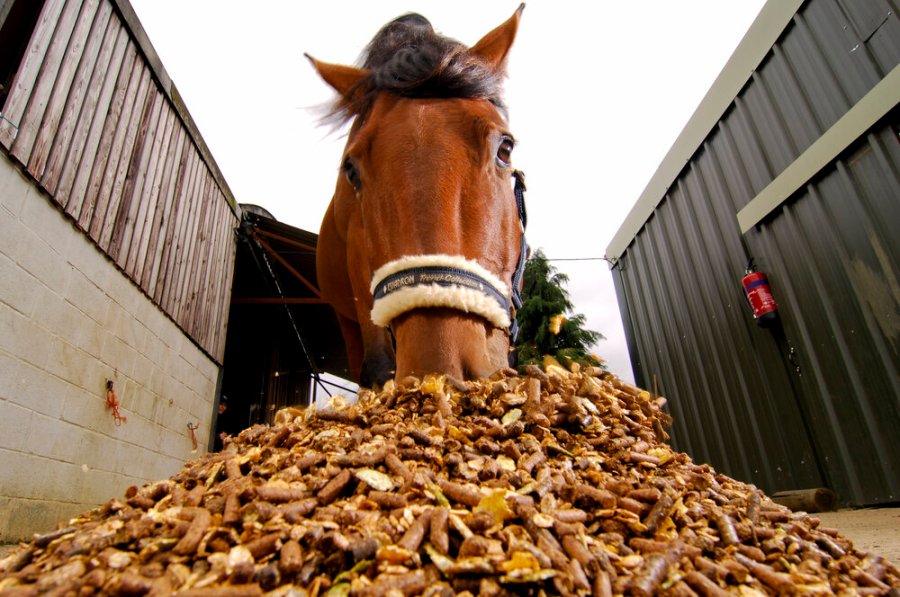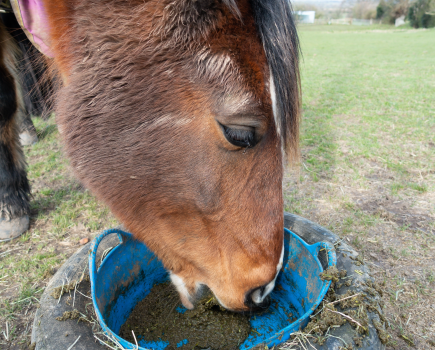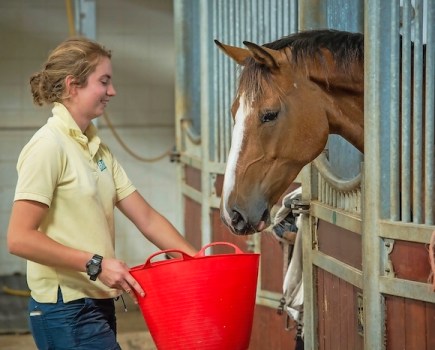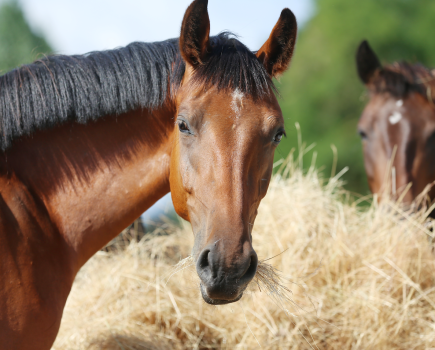There’s no getting away from it, horses are getting fatter. Research by the British Equine Veterinary Association suggests that 50% of UK horses are overweight. Take away the ultra-fit race and competition horses and the actual figure for our pleasure horses is considerably greater.
“Owners are becoming conditioned to seeing overweight horses, so it’s almost the norm for them now,” says equine nutritionist Fiona Watkins.
“Around 60% of the work I do is with horses trying to shift a serious amount of weight. People are getting fatter too, and so we no longer recognise the correct amount to feed. It’s the same with pets – many dogs and cats are much bigger than they should be.”
We need to remember how horses naturally (and very simply) manage their nutrition. They are designed to eat grasses, herbs and shrubs and occasionally fruit when available.
This means they’d become relatively fat during the summer in preparation for winter when food is in shorter supply and they’d loose weight.
Of course, many of our horses work harder than their ancestors, but even taking this into account we are still overfeeding.
“I like to see horses losing weight in winter, but sadly owners don’t,” says Fiona. “They think their horses should be the same weight all year round, and the result is increasing obesity year on year.”
The effect on our horses of this carelessness is an increase in laminitis, PPID (Cushing’s disease) and equine metabolic syndrome.
“In very overweight horses, it’s not ‘if’ they get laminitis but ‘when’. It’s a dead cert,” adds Fiona.
The issues Fiona sees day to day linked to obesity in horses include:
- Owners like to feed as it makes them feel good.
- They transfer their emotions onto their animals, feeling guilty if they are left unfed for a period of time, for instance.
- Horses are stabled more than they used to be, and owners aren’t altering their feeding regime accordingly.
- Owners are shocked to hear that they should be able to see the outline of their horse’s ribs. Many no longer believe this.
- Overweight show horses give owners the wrong impression of correct weight.
- Feeding too many treats.
Underworking
“Alongside overfeeding, we still have the issue of owners overestimating their horse’s workload,” says Fiona.
“Horses working three days a week including lessons, hacking and doing a dressage test perhaps, only need grass and daily vitamins and minerals. They’ll need a top up with hay if the grass isn’t good or if they are stabled.
“I see lots of horses being fed competition horse rations even though they are firmly in the pleasure horse camp. Native ponies are amazingly good doers and need very little, even when in work.”
Don’t miss the latest issue of Your Horse Magazine, jam-packed with training and veterinary advice, horse-care tips and the latest equestrian products available on shop shelves, on sale now.









